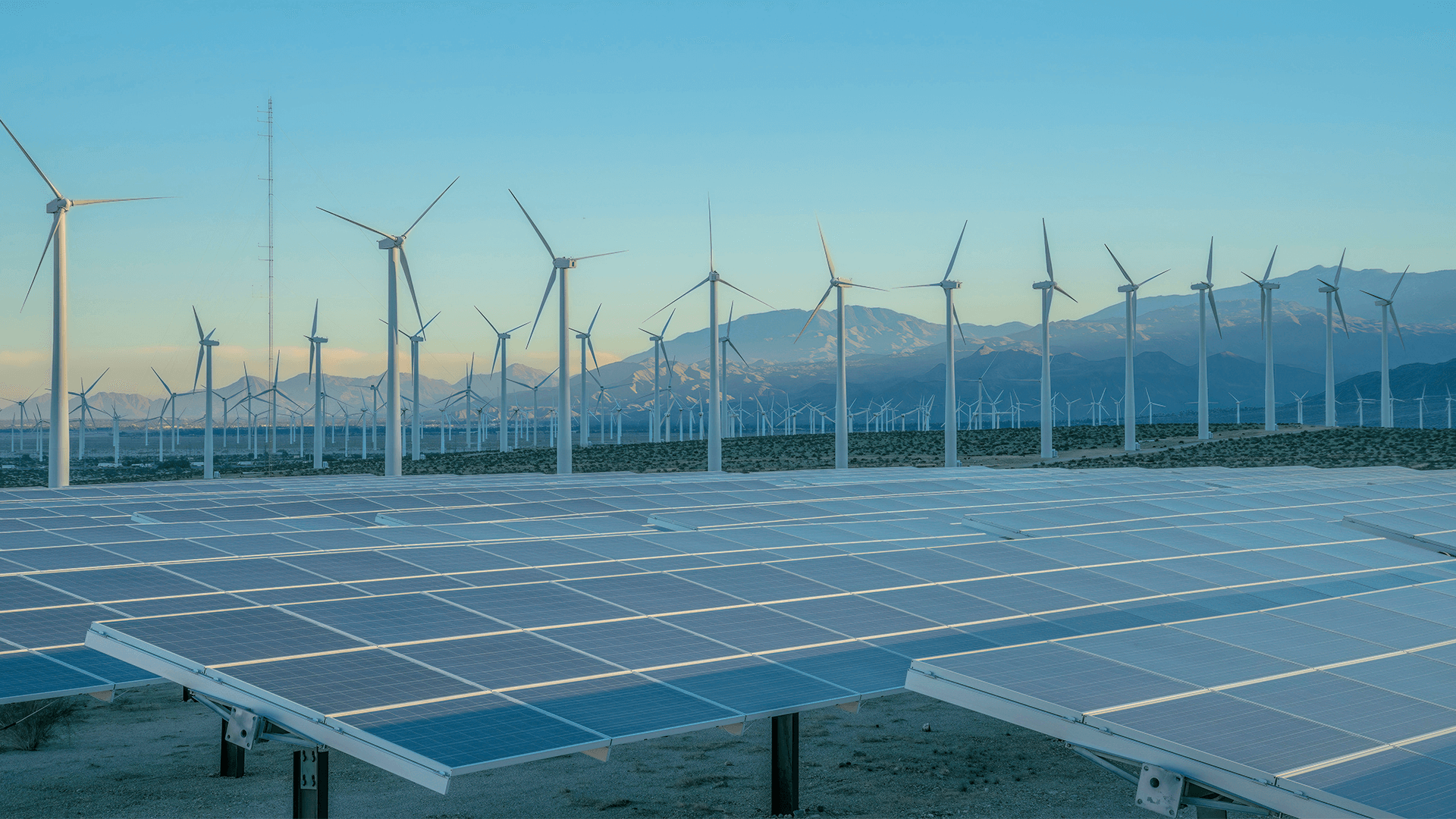
America Is All In’s report outlines an ambitious pathway to reduce net emissions through robust federal funding—such as a renewed Farm Bill-that expands climate-smart investments, plus increased federal and state wildfire mitigation
WASHINGTON, DC, January 24, 2024 – Today, America Is All In released the first-ever analysis showing that by mobilizing and expanding climate-smart policies like those in the 2018 Farm Bill, the Inflation Reduction Act, and state reforestation programs, the United States could cut net emissions from forests and farmland by 72 percent by 2035 from 2021 levels – more than was previously thought possible. This would keep the U.S. on track toward its 2050 net-zero commitments and allow U.S. forests to continue to absorb more carbon than they release.
Led by the Center for Global Sustainability (CGS) at the University of Maryland, the “Harnessing the Land Sector to Achieve U.S. Climate Goals” report demonstrates that by both implementing and expanding existing policies, the United States can reduce agricultural emissions by 82 MtCO₂e and increase forestry sequestration potential by 24 MtCO₂e by 2035 compared to 2021 levels, with the biggest opportunities in Southern and Midwestern states. Combined, that would reduce 106 MtCO₂e – roughly the equivalent of burning 118,736 pounds of coal – from entering the atmosphere.
“Smart land use policies are highly effective at reducing carbon emissions and fostering climate resilience,” added Michael R. Bloomberg, UN Secretary-General’s Special Envoy on Climate Ambition and Solutions, founder of Bloomberg LP and Bloomberg Philanthropies, and Co-Chair of America Is All In. “This report shows that by investing in our nation’s forests and farmland, we can accelerate America’s progress in reaching our climate targets, while also improving public health, creating good jobs, and saving lives. It's an idea that both parties should rally around.”
“We need to use every possible tool in our toolbox to cut our emissions and meet our climate goals, and that includes prioritizing the expansion of our carbon sink in this decade,” said Shannon Kennedy, Senior Manager of Strategic Engagement at CGS and the report’s lead author. “Our report offers the first-ever look at how we can maximize and expand today’s land use policies to accelerate emissions reductions from the agriculture and forestry sectors — incorporating reforestation, conservation, wildfire mitigation, and sustainable farming practices — not only safeguarding our natural carbon sink from emitting more than it absorbs but also fostering economic and societal progress.”
According to the report, the U.S. can increase its carbon sink largely through growth and expansion of the country’s forests and ecosystems, but it must be paired with new action to protect these vital eco-infrastructures and increase climate-smart agricultural investments. Otherwise, climate-induced droughts and fires could significantly degrade this valuable sink by the 2030s and beyond, endangering climate stabilization goals.
“Our nation's farms and forests are absolutely crucial to helping the U.S. meet our climate goals,” said Gina McCarthy, Managing Co-Chair of America Is All In and former White House national climate advisor. “Through creative policies and unprecedented investments in conservation, ecosystem restoration, and climate-smart agriculture, we can give our farmers, foresters, and ranchers the tools they need to continue feeding the world by absorbing more carbon pollution that cleans the air and reduces the risks of more extreme weather.”
In 2021, the agriculture sector was responsible for 10 percent of U.S. emissions, but our nation’s forests provided a critical carbon sink, offsetting 12 percent of emissions. The report, based on a multi-model approach integrating economic and physical considerations, outlines how current and future actions in the U.S. land sector can foster immediate emissions reductions at all levels and help secure and reverse the declining national carbon sink. Leveraging NASA’s Carbon Monitoring System and a unique land policy model, the report outlines the biophysical characteristics of land and market dynamics at the state-level to inform implementation opportunities today and critical decision-making as we approach 2050.
Key federal actions needed to achieve the all-in reduction potential in the agricultural sector include:
- Renewing and expanding federal climate-smart agricultural programs in the 2024 Farm Bill (e.g., USDA Environmental Quality Incentives Program)
- Expanding federal funding for the conservation and efficiency of agricultural lands (e.g. USDA Conservation Stewardship Program), aiding farmers in adopting energy-efficient technologies, and promoting carbon sequestration in otherwise unproductive rangelands – among other actions
- Increasing federal funding for agricultural lands conservation (e.g. USDA Agricultural Conservation Easement Program)
Key state actions for the agricultural and forestry sector include:
- Increasing federal and state-level wildfire mitigation funding (e.g., National Prescribed Fire Act, California’s Wildfire Resilience Program)
- Expanding state-level funding for tree plantings and conservation (e.g. Maryland’s Carbon Markets and Trees Commission, Minnesota’s Conservation Partners Legacy Grant Program)
- Expanding state-level funding for policies that promote healthy soils that retain carbon (e.g. Maryland’s Healthy Soils Competitive Fund and New Mexico’s Healthy Soils Program)
Read the report and find out more about the sector-specific reductions needed here.
###
About America Is All In:
America Is All In is the most expansive coalition of leaders ever assembled in support of climate action in the United States. Mobilizing thousands of U.S. cities, states, tribal nations, businesses, schools, and faith, health, and cultural institutions, the coalition is focused on pushing and partnering with the federal government to develop an ambitious, all-in national climate strategy that meets the urgency of the climate crisis; scaling climate action around the country to accelerate the transition to a 100 percent clean energy economy; and promoting the leadership of non-federal actors on the world stage.
Led by the U.N. Secretary General’s Special Envoy on Climate Ambition and Solutions Michael R. Bloomberg, Washington Governor Jay Inslee, Charlotte Mayor Vi Lyles, Apple Vice President of Environment, Policy and Social Initiatives Lisa Jackson, and former White House national climate advisor Gina McCarthy, America Is All In is driving a nationwide movement to cut U.S. emissions in half or more by 2030 from 2005 levels and reach net zero emissions by 2050, while guarding against the impacts of climate disruption.
Alongside whole-of-government action on climate, America Is All In champions a whole-of-society mobilization to deliver the transformational change that science demands, with the goal of a healthy, prosperous, equitable, and sustainable future. To learn more or get involved, visit www.americaisallin.com and follow us on Twitter and LinkedIn.
About Bloomberg Philanthropies:
Bloomberg Philanthropies invests in 700 cities and 150 countries around the world to ensure better, longer lives for the greatest number of people. The organization focuses on creating lasting change in five key areas: the Arts, Education, Environment, Government Innovation, and Public Health. Bloomberg Philanthropies encompasses all of Michael R. Bloomberg’s giving, including his foundation, corporate, and personal philanthropy as well as Bloomberg Associates, a philanthropic consultancy that advises cities around the world. In 2023, Bloomberg Philanthropies distributed $3 billion. For more information, please visit bloomberg.org, sign up for our newsletter, or follow us on Instagram, LinkedIn, YouTube, Threads, Facebook, and X.
About the Center for Global Sustainability (CGS):
Through world-leading research and policy engagement, the Center for Global Sustainability at the University of Maryland seeks to change the way that governments, businesses, and people see possibilities for ambitious climate action. Founded in 2016 in response to the need for research and thought leadership, analysis, and engagement to support the achievement of global climate goals, its programs advance understanding to support ambitious national and subnational climate strategies, fossil phase-out, energy innovation, finance, and other priorities in the United States, China, Indonesia, India, Brazil, and other major economies. CGS works with a rich community of collaborators around the world. CGS is housed within the University of Maryland School of Public Policy. Learn more at cgs.umd.edu.
###
MEDIA CONTACT:
Andrew Overton
America Is All In
###
About America Is All In:
America Is All In is the most expansive coalition of leaders ever assembled in support of climate action in the United States. Mobilizing thousands of U.S. cities, states, tribal nations, businesses, schools, and faith, health, and cultural institutions, the coalition is focused on pushing and partnering with the federal government to develop an ambitious, all-in national climate strategy that meets the urgency of the climate crisis; scaling climate action around the country to accelerate the transition to a 100 percent clean energy economy; and promoting the leadership of non-federal actors on the world stage.



